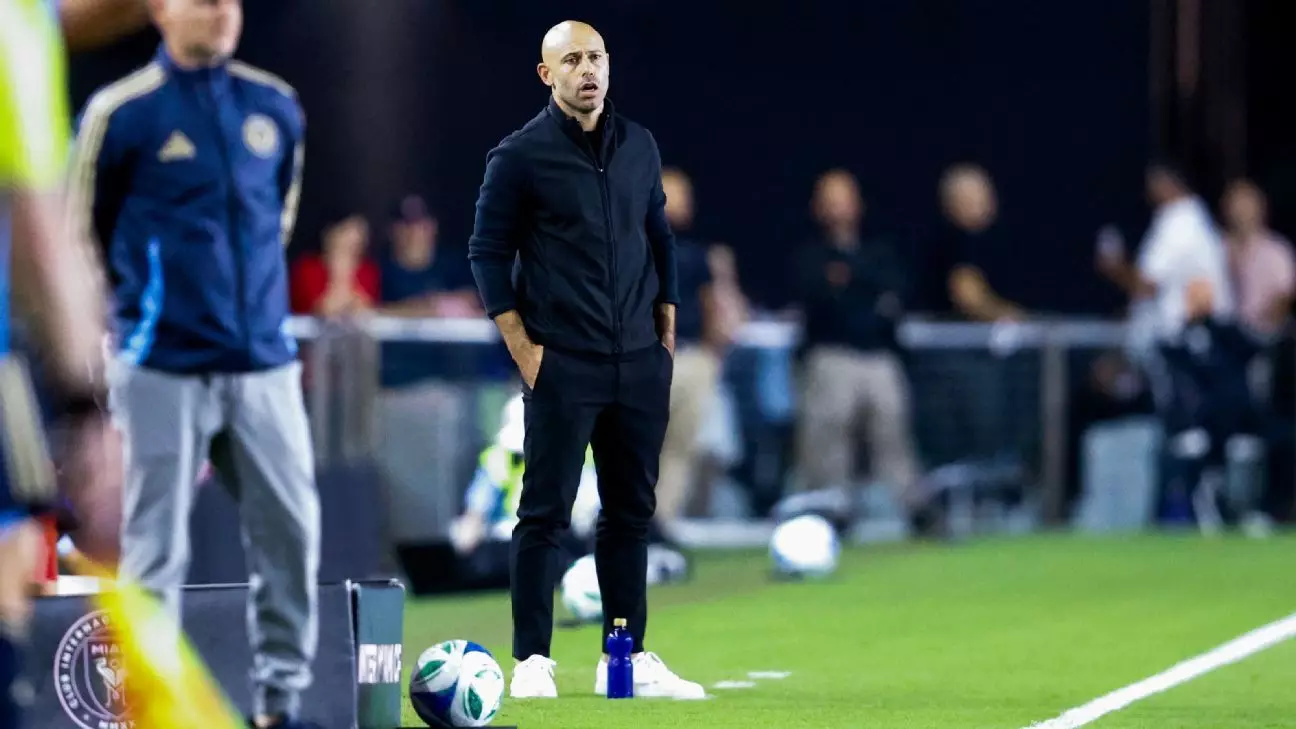In a high-stakes match that has left fans buzzing, Inter Miami’s head coach Javier Mascherano expressed vehement discontent with referee Oshane Nation’s decision-making during the first leg of the Concacaf Champions Cup quarterfinal against LAFC. The controversy erupted when LAFC’s Nathan Ordaz, after a dubious elbowing incident against Miami defender Maximiliano Falcón, only received a yellow card following a lengthy VAR review. Mascherano’s reaction was not surprising for a coach deeply invested in the outcome, remarking that the foul warranted a red card “here and in China and the moon.”
This observation by Mascherano is not just a critique of the officiating but also an undercurrent of frustration that many coaches face regarding the inconsistency in referees’ judgments. It illuminates a broader issue in sports: how arbitrary officiating can sway the momentum and morale of teams. By using strong language, Mascherano underscores a culture in which managers remain accountable for their teams while fiercely defending their integrity.
Implications of the Decision
Ordaz’s yellow card decision sent ripples through the match’s dynamics. The elbowing incident was not just an isolated act of aggression; it set the tone for the ensuing battle. Despite the questionable officiating, the young striker went on to score the decisive goal, drawing first blood for LAFC with a solitary 1-0 victory. This moment, while overshadowed by the contentious yellow card decision, amplified the drama of the match as it placed even greater pressure on Inter Miami—the clock ticking down on their hopes of advancing to the semifinals.
Mascherano’s post-match comments reflect the duality of the sport; the line between a critical assessment of referees and the practical need to fixate on game strategy becomes blurred. He remarked, “It was clear [the yellow card], in the end, it’s not up for interpretation.” This encapsulates an almost universal frustration among players and coaches alike where the interpretation of rules can lead to fundamentally unjust gamesmanship.
Faith in Home Advantage
Despite the setback, Mascherano displayed a resolute optimism about the second leg of the series set for April 9 at Chase Stadium in Fort Lauderdale. His assertion that “with our people, in our home, we can make a good game and turn it around” speaks volumes about the power of home support in sports. Inter Miami has struggled on the road and now looks to leverage its home advantage, rallying its passionate fans to stand behind the team in what could be a make-or-break game.
In grappling with the reality of losing Sergio Busquets—Miami’s midfield linchpin—due to yellow card accumulation, Mascherano faces a significant challenge. Busquets is not merely a player; his experience and tactical intelligence are invaluable assets that can make a huge difference in a match where every second counts. The absence of such a talent could weigh heavily on Miami as they prepare for their battle ahead.
The Path Forward
Inter Miami’s journey in the Concacaf Champions Cup is as much about resilience as it is about raw talent. Falling short to CF Monterrey in last year’s quarterfinals has evidently inspired a determination not to repeat past failures. The team is aware of its precarious position but stands fiercely motivated by not just a desire to win but to prove its critics wrong.
As the second leg looms closer, the narrative of the match evolves beyond just strategy or officiating; it is about passion, grit, and the belief that sport is as much about a talented squad’s collective will as it is about the actions of individuals, both on the field and off it. The ambiance at Chase Stadium promises to transform the atmosphere where team spirit may well influence the future trajectory of Inter Miami.
In a world filled with controversial calls and unexpected twists, there is little doubt that fans and players alike will be locked in on how Miami responds, showcasing the electrifying essence of the beautiful game.

